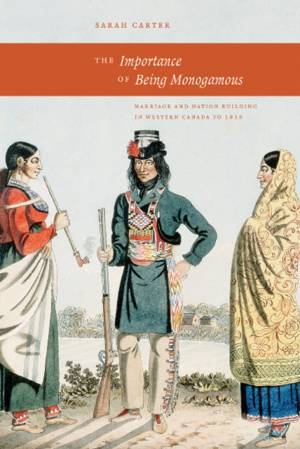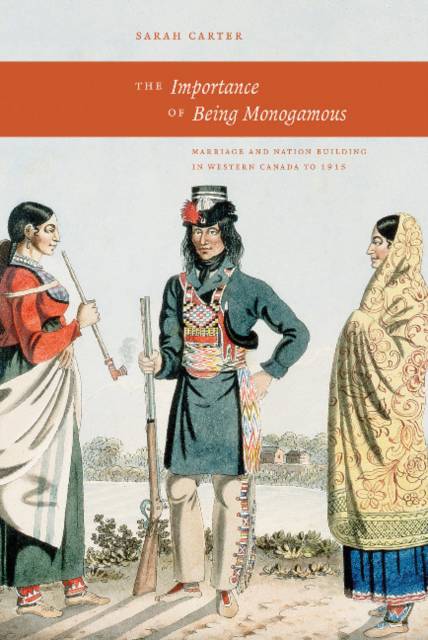
Je cadeautjes zeker op tijd in huis hebben voor de feestdagen? Kom langs in onze winkels en vind het perfecte geschenk!
- Afhalen na 1 uur in een winkel met voorraad
- Gratis thuislevering in België vanaf € 30
- Ruim aanbod met 7 miljoen producten
Je cadeautjes zeker op tijd in huis hebben voor de feestdagen? Kom langs in onze winkels en vind het perfecte geschenk!
- Afhalen na 1 uur in een winkel met voorraad
- Gratis thuislevering in België vanaf € 30
- Ruim aanbod met 7 miljoen producten
Zoeken
The Importance of Being Monogamous
Marriage and Nation Building in Western Canada to 1915
Sarah Carter
€ 37,95
+ 75 punten
Omschrijving
Sarah Carter provides a detailed description of marriage as a diverse social institution in nineteenth-century Western Canada, and the subsequent ascendancy of Christian, lifelong, heterosexual, monogamous marriage as an instrument to implement dominant British-Canadian values. It took work to impose the monogamous model of marriage as the region was home to a varied population of Aboriginal people and newcomers such as the Mormons, each of whom had their own definitions of marriage, including polygamy and flexible attitudes toward divorce. The work concludes with an explanation of the negative social consequences for women, particularly Aboriginal women, that arose as a result of the imposition of monogamous marriage. "Of an immense amount of new and pathbreaking research on Native people over the past 20 years, this work stands out." -Sidney L. Harring, Professor of Law at City University of New York and author of White Man's Law: Native People in Nineteenth-Century Canadian Jurisprudence
Specificaties
Betrokkenen
- Auteur(s):
- Uitgeverij:
Inhoud
- Aantal bladzijden:
- 400
- Taal:
- Engels
- Reeks:
Eigenschappen
- Productcode (EAN):
- 9780888644909
- Verschijningsdatum:
- 9/04/2008
- Uitvoering:
- Paperback
- Formaat:
- Trade paperback (VS)
- Afmetingen:
- 155 mm x 226 mm
- Gewicht:
- 594 g

Alleen bij Standaard Boekhandel
+ 75 punten op je klantenkaart van Standaard Boekhandel
Beoordelingen
We publiceren alleen reviews die voldoen aan de voorwaarden voor reviews. Bekijk onze voorwaarden voor reviews.









